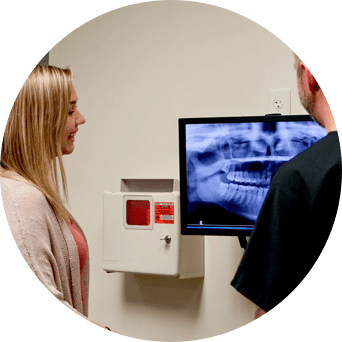Wisdom Teeth Management
Wisdom teeth (also known as third molars) are the last teeth to develop and erupt into the mouth, usually between the ages of 17 and 25.
Wisdom teeth may not need to be extracted if they grow in completely and are functional, painless, cavity-free, disease-free and in a hygienic environment with healthy gum tissue. They do, however, require regular professional cleaning, annual check-ups and periodic radiographs to monitor for any changes.
When a tooth doesn’t fully erupt into the mouth, it is usually impacted and unable to break completely through the gums because there isn’t enough room.

OMS Voices Preview: Wisdom Teeth FAQs

An impacted wisdom tooth can damage neighboring teeth or lead to infection. Because these areas of the mouth are difficult to clean, a wisdom tooth can develop a cavity or collect bacteria leading to gum disease. Oral bacteria can travel through your bloodstream and potentially lead to infections and illnesses affecting your heart and other organs. In some cases, a cyst or tumor can form around the impacted tooth, which can lead to more serious problems, including damage to adjacent teeth or other surrounding structures.

OMS Voices Preview: Wisdom Teeth: How Should My Teen Prepare for Wisdom Teeth Surgery?

Generally, a wisdom tooth should be removed if it presents with:
- Dental pain
- Poor oral hygiene
- Infection
- Periodontal (gum) disease
- Cavities
- Cysts, tumors or other pathology
- Damage to neighboring teeth

